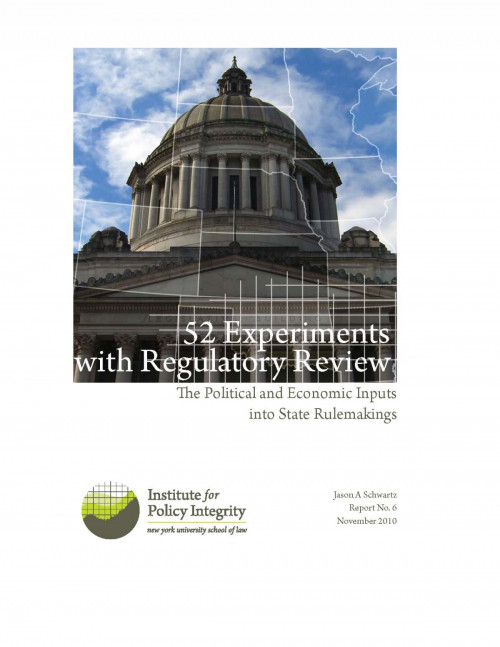-
Public comments on Green Labels
Lately, labels on eco-friendly products have proliferated. It seems like almost everything is marked as “green,” “compostable,” “free of” something, or made with renewable materials. But who makes sure all these items are as gentle on the environment as they say they are?
-
Public Comments on Fuel Economy Label Revisions
Recently, the Environmental Protection Agency and the National Highway Traffic and Safety Administration proposed revisions to the labels that auto manufacturers have to put in the windows of their vehicles to let buyers know how much—or how little—gas their cars will guzzle.
-
Public Comments on the Economics of Coal Ash Disposal
In many places around the nation the toxic sludge leftovers of the coal combustion process are stored in vast unlined pools where poisons can leak into groundwater. Sometimes, like in Kingston, Tennessee, these holding pens break letting loose an avalanche of black poisonous muck.
-
Memo on Myths of Net Neutrality
In the discourse over net neutrality there are some important facts getting lost in the shuffle. There are strong arguments that weigh in favor of net neutrality, and there are reasonable arguments that caution against it. There is no reason for either side to rely on myths to win support.
-

52 Experiments with Regulatory Review
The Political and Economic Inputs into State Rulemaking
After more than a year of research, surveys, and analysis, Policy Integrity is the first to compile the regulatory practices of all fifty states in one document. Comparing each set of laws and guidelines on paper to direct feedback from leaders on the ground, the report assigns states a grade based on the quality of their review process.
-
Comments on specialized services and wireless in the net-neutrality debate
Recently, the FCC asked for feedback on two issues: how so-called “specialized services” should be exempted from neutrality protections, if at all, and whether open Internet rules should be applied to wireless services in addition to wireline broadband services.
-
_110_170_90.jpg)
Regulatory Change and Optimal Transition Relief
Grandfathering has become a common practice in regulating industries like coal power generation. But it is not clear that phasing out polluting plants is beneficial. The costs of retrofitting existing plants to comply with new standard can be higher than the compliance costs for a new plant. Since the costs of shifting to new technology must be borne at some point, (since granfathering can’t be indefinite) it might be best not to grandfather at all so that society can benefit from lower pollution levels earlier. That’s just one of the arguments examined in this working paper.
-
Public Comments to EPA and NHTSA on the Economics of CAFE Standards
In their first notice of intent to propose new fuel economy standards for light-duty vehicles Model Year 2017 and later, EPA and NHTSA ask for comments on their research plan for the coming months and raise crucial questions, such as why the private market does not currently provide for more fuel-efficient vehicles and whether there are any “unidentified additional costs” of fuel-efficient
-
Comments submitted to DOE on appliance energy savings rule
The U.S. Department of Energy is planning to use an expanded way of estimating the energy savings of appliances. It would incorporate the costs of everything from fuel extraction to distribution and also estimate the greenhouse gas impacts of the machine.
-
Comments on EPA’s Transport Rule
Today, Policy Integrity offered suggestions on the EPA’s plans to reduce certain kinds of air pollutants that waft across state lines.
